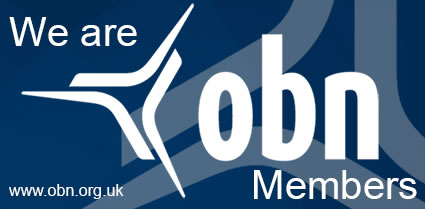ABOUT
Neuro-Bio is a privately owned biotech out of Oxford University with a therapeutic focus on neurodegenerative disease. The company has discovered a novel 14 amino acid bioactive peptide (T14) derived from the C terminus of AChE.
T14 is neurotoxic in the adult brain and published data shows it to be a potential key driver of neurodegeneration.
This new distinct mechanism is being exploited by Neuro-Bio to develop exciting new drugs to treat Alzheimer’s disease. Neuro-Bio can also measure t14 in blood and is developing this biomarker as a companion diagnostic.
A DISRUPTIVE APPROACH
The disruptive approach of Neuro-Bio has:
- Identified the subset of cells vulnerable to Alzheimer’s Disease (AD)
- Explained the reason they are prone to degenerate
- Identified the key pivotal toxic peptide (‘T14’) driving this process
- Proven that T14 is a feature of the AD brain
- Developed a novel animal model based on T14
- Devised a possible blood test whereby T14 could be a biomarker
- Identified the T14 target molecule
- Designed a T14 blocker as an effective therapeutic drug with behavioral and histological effects proven
TESTIMONIAL
“Dr Greenfield and her colleagues at NeuroBio have developed a novel, innovative, and potentially very fruitful approach to the treatment of Alzheimer’s disease.
The work represents an excellent example of translational research in which a finding in basic neurobiology has been linked to key aspects of human disease.” – Dr Richard Mohs, Chief Scientific Officer for the Global Alzheimer’s Platform (GAP) Foundation.
INTRODUCING OUR NEW NED
Professor Paul L Herrling, PhD:
“As head of Sandoz Neuroscience Research and Sandoz and Novartis Head of global Research I have followed the Alzheimer drug discovery field for many years and this included the work of Susan Greenfield whom I had met many years ago at a scientific meeting.
Over time her work evolved and generated a body of data that lead to a new hypothesis for the mechanism leading to Alzheimer’s disease involving T14. An interesting aspect of this hypothesis is that it is fully consistent with the body of evidence that had been accumulated on this topic.
The T14 hypothesis points to a mechanism that is preceding APP and tau accumulation in neurons.
When Neuro-Bio had generated a peptide that might interfere with this disease mechanism, Susan asked me if, based on my drug discovery experience, I would advise her as that aspect was not her experience. I agreed to do so and recommended a series of experiments that would determine if the NBP14 peptide could progress in the drug discovery process towards an evaluation in a clinical setting.
The results of these experiments were all consistent and indicated that NBP14 might beneficially interfere with the neurotoxic process that lead to neuronal degeneration in Alzheimer.
Taken together the results obtained in different laboratories around the world are considered sufficient to warrant a further evaluation of NBP14. These experiments included a proof of concept in animal models accepted by the Alzheimer community. Before NBP14 can be evaluated in humans safety studies are necessary and for that a sufficient quantity of GLP grade NBP14 is needed as a next step.
At this point I was asked to join the board of Neuro-Bio as they wished to have a drug discovery expert in their midst. Because of the positive results obtained, and the fact that the T14 approach is sufficiently different from the approaches tested by others previously, I decided to join the Neuro-Bio Board to help in evaluating this new approach that, if successful, would address a major medical need.
The work in drug development terms is still at an early stage and subject to many hurdles until it might be successfully used on patients: however in my view this programme is well worth further pursuing and has the potential of a breakthrough in the treatment of Alzheimer’s disease.”
T: +44 (0)1235 420 085
E: info@neuro-bio.com

© All Rights Reserved NeuroBio
